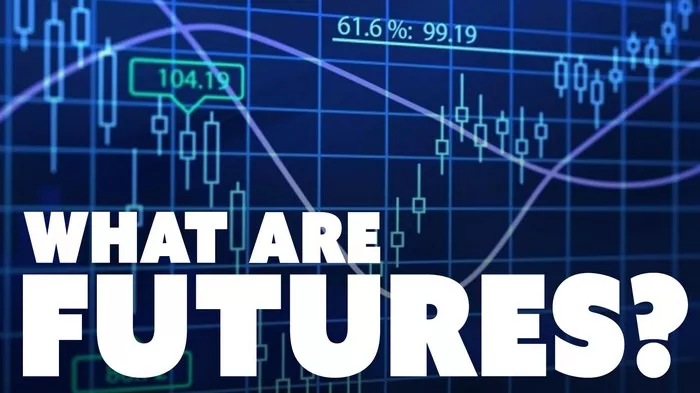Stock futures play a significant role in the financial markets, offering investors a unique opportunity to hedge risk, speculate on price movements, and diversify their portfolios. With their potential for high returns and inherent risks, it’s essential to have a solid understanding of what stock futures are and how they function within the broader landscape of financial instruments.
What are Stock Futures?
Stock futures are financial contracts that obligate the buyer to purchase or the seller to sell a specified quantity of shares of a particular stock at a predetermined price on a future date. Unlike trading individual stocks, where settlement occurs immediately, futures contracts have a predetermined expiration date in the future, typically quarterly. These contracts are standardized and traded on regulated exchanges, such as the Chicago Mercantile Exchange (CME) and the Intercontinental Exchange (ICE).
How Do Stock Futures Work?
Stock futures derive their value from the underlying stock. The price of a futures contract reflects the anticipated future value of the underlying stock. If investors believe that the stock’s price will rise in the future, they can buy futures contracts to lock in the current price, known as taking a long position. Conversely, if they anticipate a decline in the stock’s price, they can sell futures contracts, known as taking a short position.
Upon entering into a futures contract, both the buyer (long position) and the seller (short position) are obligated to fulfill the terms of the contract at the specified expiration date. However, it’s crucial to note that many futures contracts are closed out before expiration through offsetting transactions, where investors take an opposite position to their original trade.
Key Features of Stock Futures:
1. Leverage: One of the significant advantages of trading futures is the ability to control a large position with a relatively small amount of capital. Futures contracts require an initial margin, which is a fraction of the contract’s total value. This leverage amplifies both potential profits and losses, making futures trading a high-risk, high-reward endeavor.
2. Standardization: Futures contracts are standardized in terms of size, expiration date, and other essential parameters. This standardization promotes liquidity and ensures that all parties have a clear understanding of their rights and obligations.
3. Mark-to-Market: Futures contracts are marked to market daily, meaning that profits and losses are realized each trading day based on the contract’s current value. This mechanism helps mitigate counterparty risk by ensuring that investors maintain adequate margin levels to cover potential losses.
4. Delivery vs. Cash Settlement: While futures contracts theoretically involve the delivery of the underlying asset, the majority of contracts are settled in cash rather than physical delivery. This cash settlement simplifies the trading process and allows investors to participate in futures markets without worrying about logistics associated with physical delivery.
Uses of Stock Futures:
1. Risk Management: Institutional investors, hedge funds, and other market participants use stock futures to hedge against adverse price movements in their portfolios. By taking offsetting positions in futures contracts, investors can mitigate the impact of market volatility on their overall returns.
2. Speculation: Traders also use stock futures to speculate on price movements, attempting to profit from anticipated changes in the market. Speculative trading in futures markets adds liquidity and price discovery, enhancing overall market efficiency.
3. Portfolio Diversification: Stock futures offer an additional avenue for diversifying investment portfolios beyond traditional stocks and bonds. By incorporating futures contracts into a diversified investment strategy, investors can potentially enhance risk-adjusted returns and reduce overall portfolio volatility.
Risks Associated with Stock Futures:
1. Leverage Risk: The inherent leverage in futures trading magnifies both gains and losses. While leverage can amplify returns in favorable market conditions, it also increases the potential for significant losses, especially in volatile markets.
2. Market Risk: Futures prices are influenced by a variety of factors, including supply and demand dynamics, economic indicators, geopolitical events, and investor sentiment. Fluctuations in these factors can lead to substantial price swings, exposing investors to market risk.
3. Counterparty Risk: Although futures contracts are traded on regulated exchanges, there is still a risk of default by the counterparty. To mitigate this risk, exchanges typically require participants to post margin and mark contracts to market daily.
Conclusion:
Stock futures are powerful financial instruments that offer investors a wide range of opportunities for risk management, speculation, and portfolio diversification. By understanding the mechanics of futures trading and the associated risks, investors can make informed decisions to optimize their investment strategies. Whether used for hedging against market volatility, speculating on price movements, or enhancing portfolio diversification, stock futures play a vital role in the global financial markets.
FAQs:
Q1: How do I trade stock futures?
A1: To trade stock futures, you’ll need to open an account with a brokerage firm that offers futures trading services. After funding your account and completing any necessary documentation, you can place orders to buy or sell futures contracts through the broker’s trading platform.
Q2: What factors influence the price of stock futures?
A2: Several factors can influence the price of stock futures, including supply and demand dynamics, interest rates, economic indicators, geopolitical events, and investor sentiment. Changes in any of these factors can impact futures prices, leading to price fluctuations.
Q3: Are stock futures suitable for all investors?
A3: Stock futures involve inherent risks, including leverage, market volatility, and counterparty risk. While they can be powerful tools for risk management, speculation, and portfolio diversification, they may not be suitable for all investors. It’s essential to assess your risk tolerance, investment objectives, and financial situation before trading stock futures. Additionally, novice investors may benefit from gaining experience in more traditional investment vehicles before venturing into futures trading.


